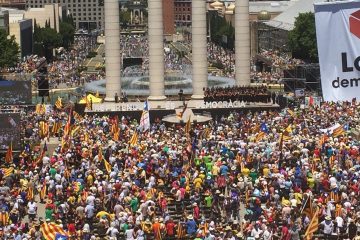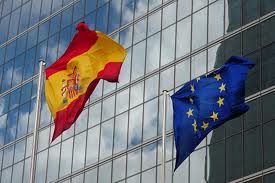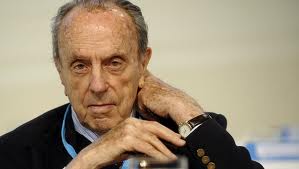A Very Spanish Coup: What Can America Learn from the 1981 Spanish Coup
The storming of the American Capitol building on the 6th of January 2021 during a session to formalize Joe Biden’s presidential victory made headlines around the world. For many Americans, the fact that there was an armed attempt to disrupt a democratic transition of power was a worrying sign of democratic backsliding and the consequence of years of extreme partisanship. The siege suggested a grim vision of America’s political future. However, 40 years ago, the Spanish political system was able to recover from a similar event, in what could be an instructive experience for contemporary America. In February 1981, the Spanish political system, which had rapidly democratised following the death of General Francisco Franco in 1975, faced its first real …
A Home for the Nation and the World: 150 Years of the Abolition of the Universities Tests Act
June 16, 2021 marks the 150th anniversary of the Universities Tests Act 1871, which fully opened the universities of Oxford, Cambridge, and Durham to non-Anglicans, who were restricted from membership of England’s historic universities once the Test Act of 1673 came into force. Oxford had an even older restriction on non-Anglicans dating back to 1581. English dissenters played a significant role in encouraging the revocation of the Tests Act, since they believed that “Oxford and Cambridge were national institutions which ought to be open to all Englishmen, irrespective of their religious opinions” (Twaddle 1966). Even when the restriction was lifted, however, many English Catholic bishops discouraged Catholic youths from enrolling at Oxford and Cambridge “fearing the universities’ scepticism and Anglican …

The Catalan process and the dispute over ‘democracy’ in Spain
More than two million Catalans voted on October 1st in a referendum on self-determination previously declared illegal by the Spanish constitutional court and violently repressed by the Spanish government led by Mariano Rajoy. The response of the Spanish government has been condemned internationally. For instance, Amnesty International described the action of the Spanish police forces in Catalonia as “excessive and disproportionate”. Despite prohibition and violence, which affected participation and the accurate counting of the votes, the referendum took place thanks mostly to the organisation, efforts, and inventiveness of different sectors of the Catalan civil society. In the thousands, citizens engaged in a strategy of peaceful resistance against the aggression of the central state. The ‘yes’ option won with 90% of …

Civic Republicanism in Spain: A North Star for hard times
The key principle of Republicanism is to minimise domination wherever it is found. The Zapatero governments in Spain, for example, showed how this idea can shape the policies of nation states. Is it possible to extend Republican principles to the global arena? I’ll start with what everybody knows. We live in hard times. There is much more suffering in Europe right now than just five years ago – much more domination too. Arguably, a sort of global redistribution is benefiting ‘developing’ countries to the detriment of the ‘developed’ world. But Western democracies are doing badly, and their prospects are not promising. [This post is part of the Democratic Wealth series, hosted by Politics in Spires in partnership with Our Kingdom.]

Spain: Time for more structural reform
Spain has now been in recession for almost five years, and has had to face challenges and tackle each of them in very different ways. In the beginning, the concern with national public spending, led to severe budget cuts in 2011 and 2012. Later, the need to reform the labour market emerged in order make it more flexible and competitive, prompting a general strike in March of this year. A few months ago doubts about the health of the Spanish financial system surfaced. Would Spain be capable of recapitalising its banks without putting its overall solvency at risk? European partners stepped in and structured a bailout of Spanish banks that attempted to de-couple financial and sovereign risk. Today we read …

Remembering Manuel Fraga – politician and guardian of Spanish conservatism
Manuel Fraga Iribarne, who died on the 15th January (at 89), was a lion of modern Spanish conservatism. Born in 1922 in a small Galician town, he was the son of Spanish immigrants who had spent a year working in Cuba. His mother was a French-Basque teacher. In his early academic career he excelled in degrees in law, politics and economics and passed several of the most competitive exams for recruitment in Franco’s Public Administration before becoming a professor of state theory, a lawyer to the Congress and a diplomat. Highly cultivated, prolific and hardworking, he wrote approximately 80 books on history, politics and law. His encyclopaedic essay ‘La crisis del Estado’ (The State’s Crisis), influenced by Carl Schmitt, is arguably …









